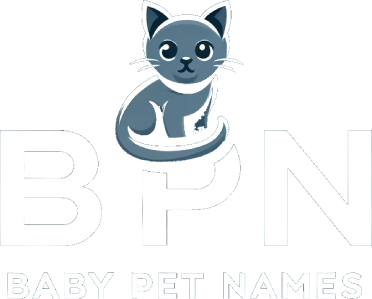Having the ability to navigate crucial conversations effectively is a skill that can have a significant impact on both your personal and professional life. Engaging in conversations where opinions vary, stakes are high, and emotions run strong can be daunting. However, with the right approach and tools, you can successfully navigate these conversations and even turn them into opportunities for growth and understanding. In this comprehensive guide, we will delve into the art of crucial conversations and provide you with the strategies and techniques to help you master this skill.
What Are Crucial Conversations?
Crucial conversations are discussions where the stakes are high, opinions vary, and emotions are involved. These conversations can occur in various aspects of our lives, from workplace conflicts and negotiations to discussing sensitive topics with loved ones. The defining characteristic of crucial conversations is that the outcome of the discussion can have a significant impact on the parties involved.
Why Are Crucial Conversations Important?
Mastering the art of crucial conversations is essential for several reasons. Firstly, these conversations provide an opportunity for addressing important issues and resolving conflicts effectively. By effectively navigating crucial conversations, you can build stronger relationships, improve teamwork, and foster better understanding and trust among individuals. Additionally, mastering crucial conversations can lead to better decision-making, increased productivity, and enhanced problem-solving skills.
Key Elements of Crucial Conversations
To effectively handle crucial conversations, it is crucial to understand and incorporate the following key elements into your approach:
1. Create a Safe Environment: Establishing a safe and conducive environment is essential for encouraging open and honest communication during crucial conversations. Ensure that all parties feel respected and valued, and encourage them to share their thoughts and feelings without fear of judgment or reprisal.
2. Focus on Mutual Purpose: Identify a shared goal or purpose that aligns all parties’ interests during the conversation. Focusing on mutual purpose can help steer the conversation towards a collaborative and solution-oriented direction.
3. Listen Actively: Active listening is a fundamental skill in crucial conversations. Practice empathetic listening by paying attention to both verbal and non-verbal cues, summarizing the speaker’s points, and asking clarifying questions to demonstrate your understanding.
4. Manage Emotions: Emotions often run high during crucial conversations, which can derail the discussion if not managed effectively. Acknowledge and validate emotions, take a pause if needed, and use calming techniques to regulate your own emotions and help others do the same.
5. Be Assertive, Not Aggressive: Strike a balance between being assertive and respectful of others’ opinions. Avoid aggressiveness, passive-aggressiveness, or manipulation tactics, and instead, communicate your thoughts and feelings assertively and respectfully.
Strategies for Mastering Crucial Conversations
Mastering the art of crucial conversations requires practice and dedication. The following strategies can help you navigate these discussions effectively:
1. Prepare in Advance: Before engaging in a crucial conversation, take the time to prepare yourself mentally and emotionally. Clarify your goals for the conversation, anticipate potential challenges, and plan your approach to ensure a productive discussion.
2. Use “I” Statements: When expressing your thoughts and feelings during a crucial conversation, use “I” statements to take ownership of your emotions and opinions. This can help prevent defensiveness and facilitate a more constructive dialogue.
3. Practice Empathy: Empathy plays a critical role in understanding others’ perspectives and building rapport during crucial conversations. Put yourself in the other person’s shoes, acknowledge their feelings, and show genuine care and concern for their point of view.
4. Seek a Win-Win Solution: Instead of approaching crucial conversations as win-lose scenarios, strive to find a win-win solution that addresses the concerns of all parties involved. Collaborate, brainstorm ideas, and work towards a resolution that benefits everyone.
5. Follow Up: After a crucial conversation, follow up with the other party to reinforce any agreements or decisions made during the discussion. Clarify next steps, set clear expectations, and check back in to ensure that progress is being made towards the desired outcome.
Frequently Asked Questions (FAQs) About Crucial Conversations:
Q1: How can I prepare for a crucial conversation?
A1: To prepare for a crucial conversation, clarify your goals, anticipate challenges, and plan your approach. Consider the other party’s perspective and emotions to tailor your communication appropriately.
Q2: What are some common pitfalls to avoid during crucial conversations?
A2: Common pitfalls to avoid include defensiveness, aggression, avoidance of the main issue, and lack of active listening. Stay focused on the topic, manage emotions effectively, and strive for mutual understanding.
Q3: How can I handle strong emotions during a crucial conversation?
A3: When confronted with strong emotions during a crucial conversation, acknowledge and validate them, take a pause if needed, and use calming techniques such as deep breathing or positive self-talk to regulate emotions.
Q4: What if the other party is being hostile or uncooperative during a crucial conversation?
A4: If the other party is hostile or uncooperative, remain calm, assertive, and respectful. Focus on de-escalating the situation, setting boundaries, and redirecting the conversation towards a more constructive path.
Q5: How can I ensure a positive outcome after a crucial conversation?
A5: To ensure a positive outcome after a crucial conversation, follow up with the other party to clarify agreements and expectations. Stay committed to the resolution, monitor progress, and address any issues that may arise promptly.
In conclusion, mastering the art of crucial conversations is a valuable skill that can enhance your communication abilities, strengthen relationships, and drive positive change in various aspects of your life. By incorporating the key elements, strategies, and techniques outlined in this guide, you can approach crucial conversations with confidence, empathy, and a focus on constructive dialogue and mutual understanding. Stay committed to practicing and refining your skills in crucial conversations, and you will reap the benefits of improved communication, enhanced relationships, and better conflict resolution capabilities.
